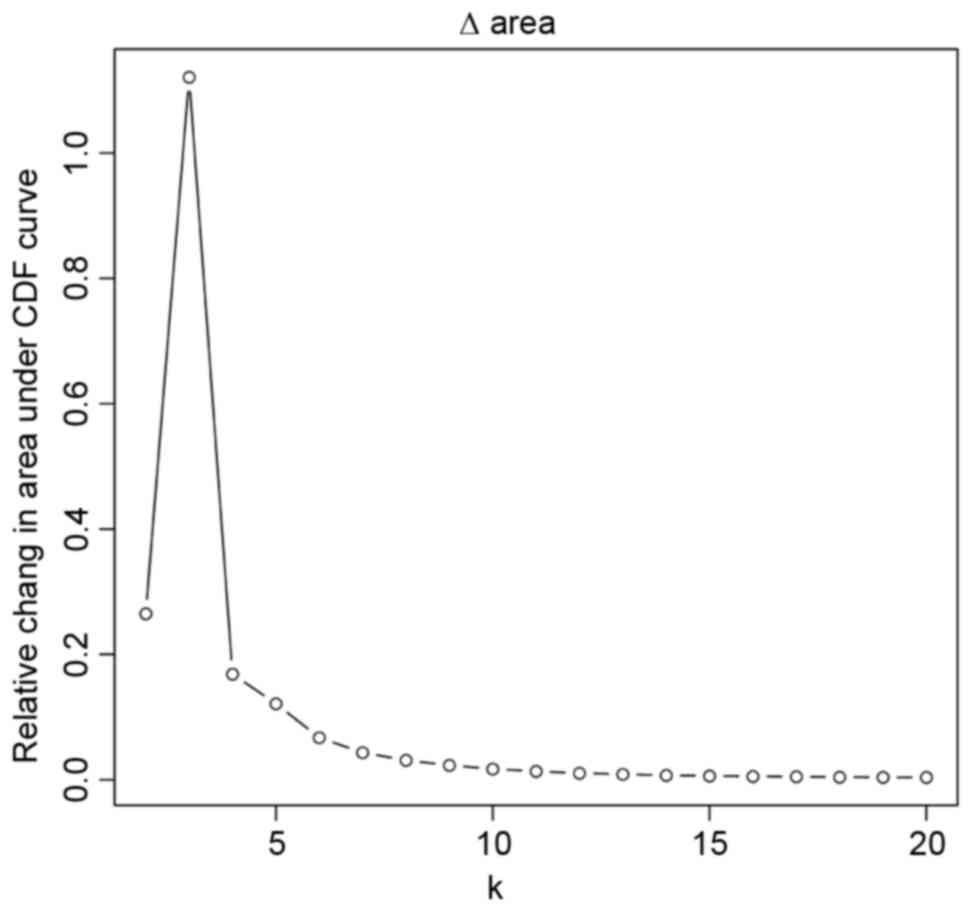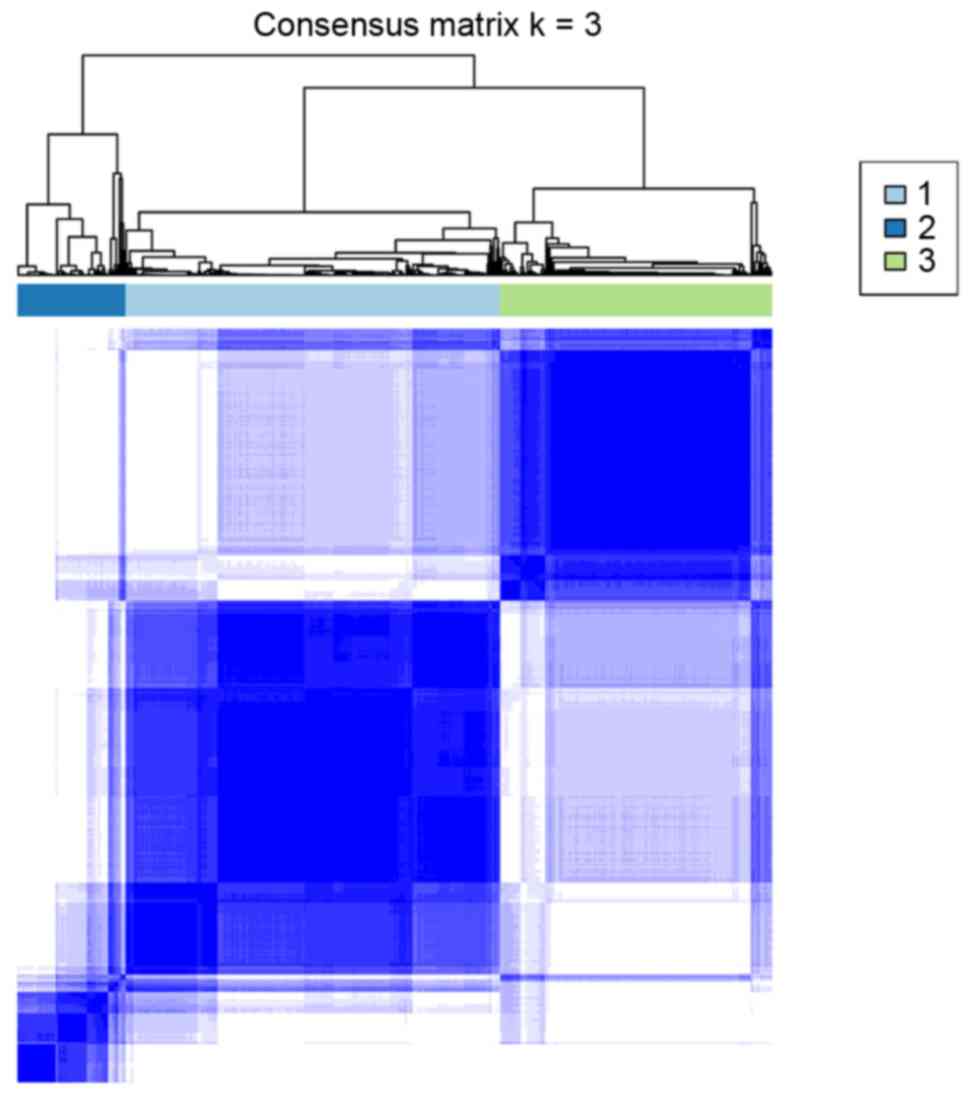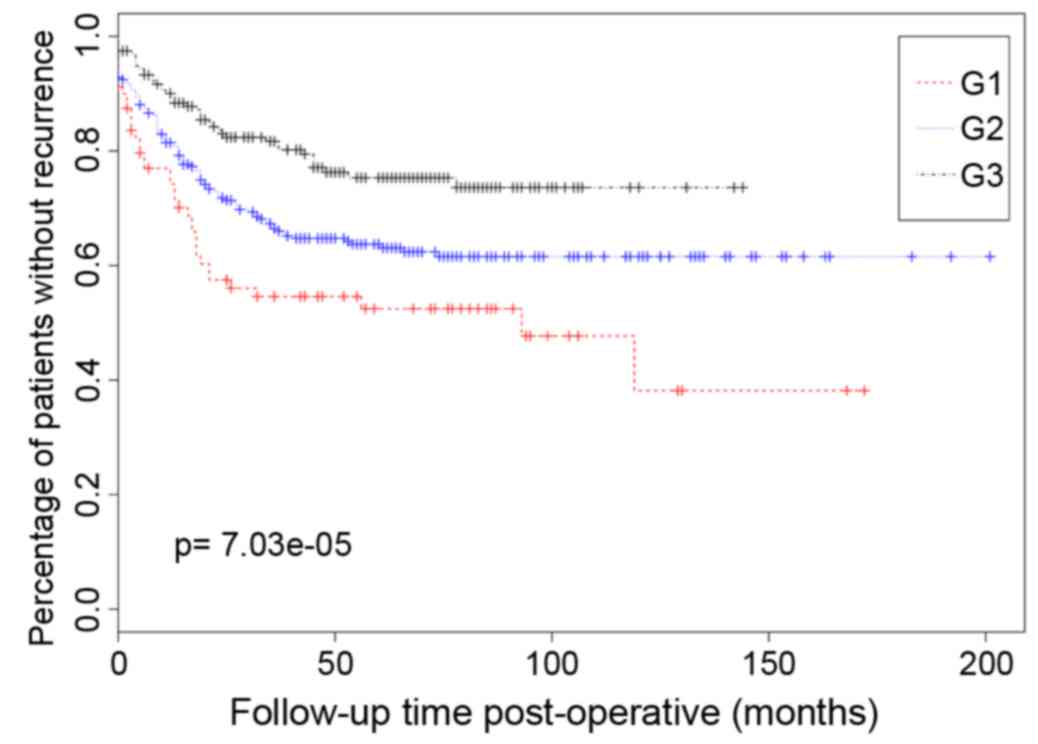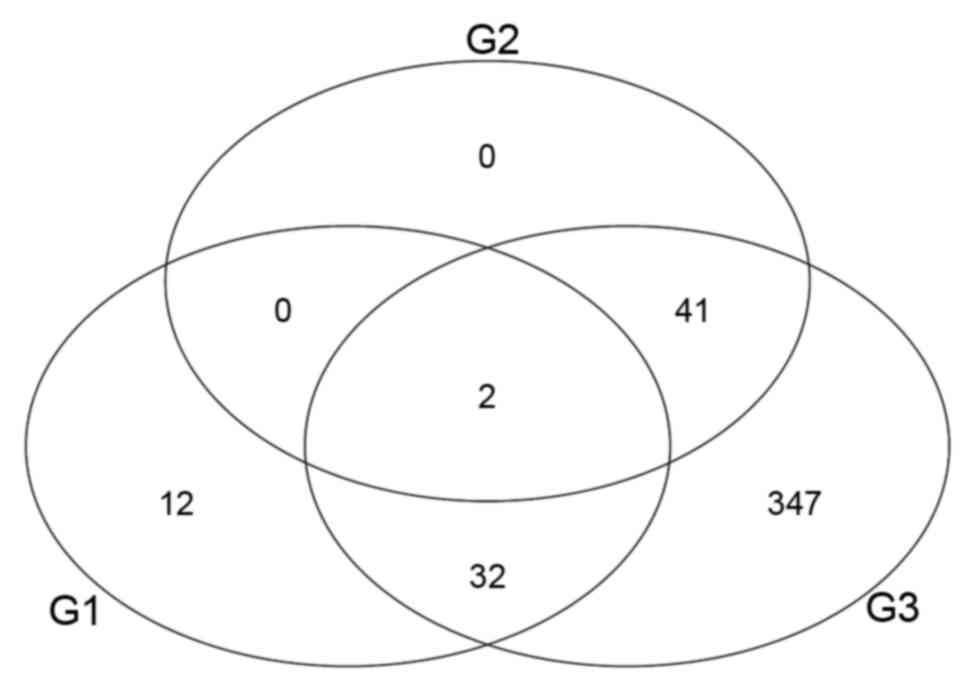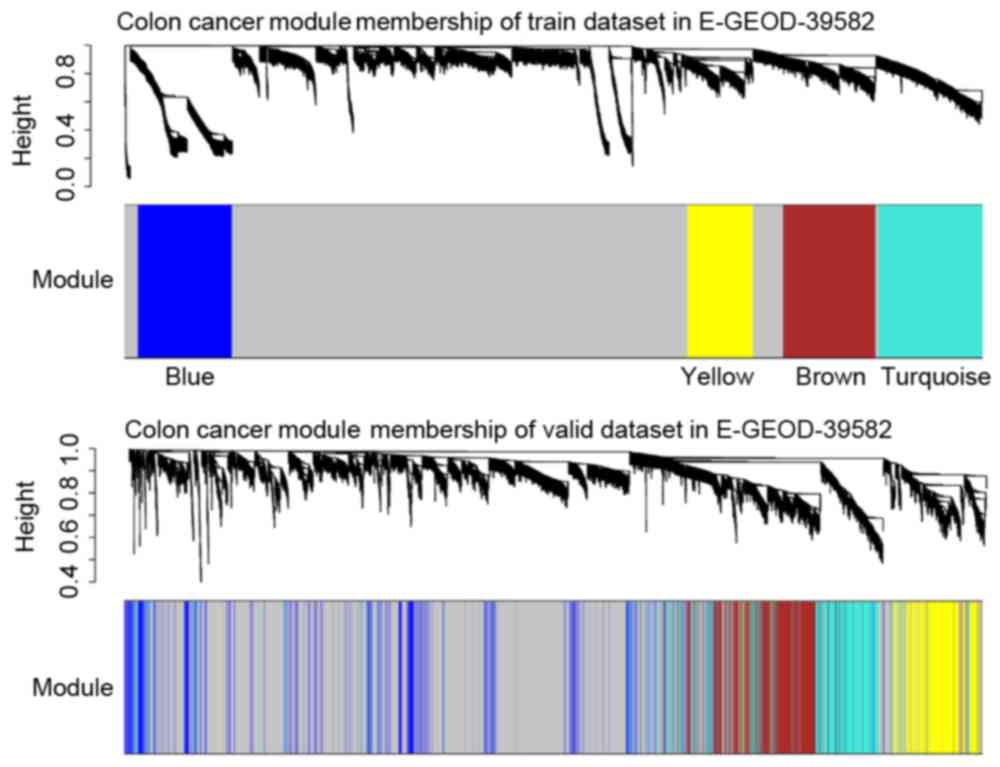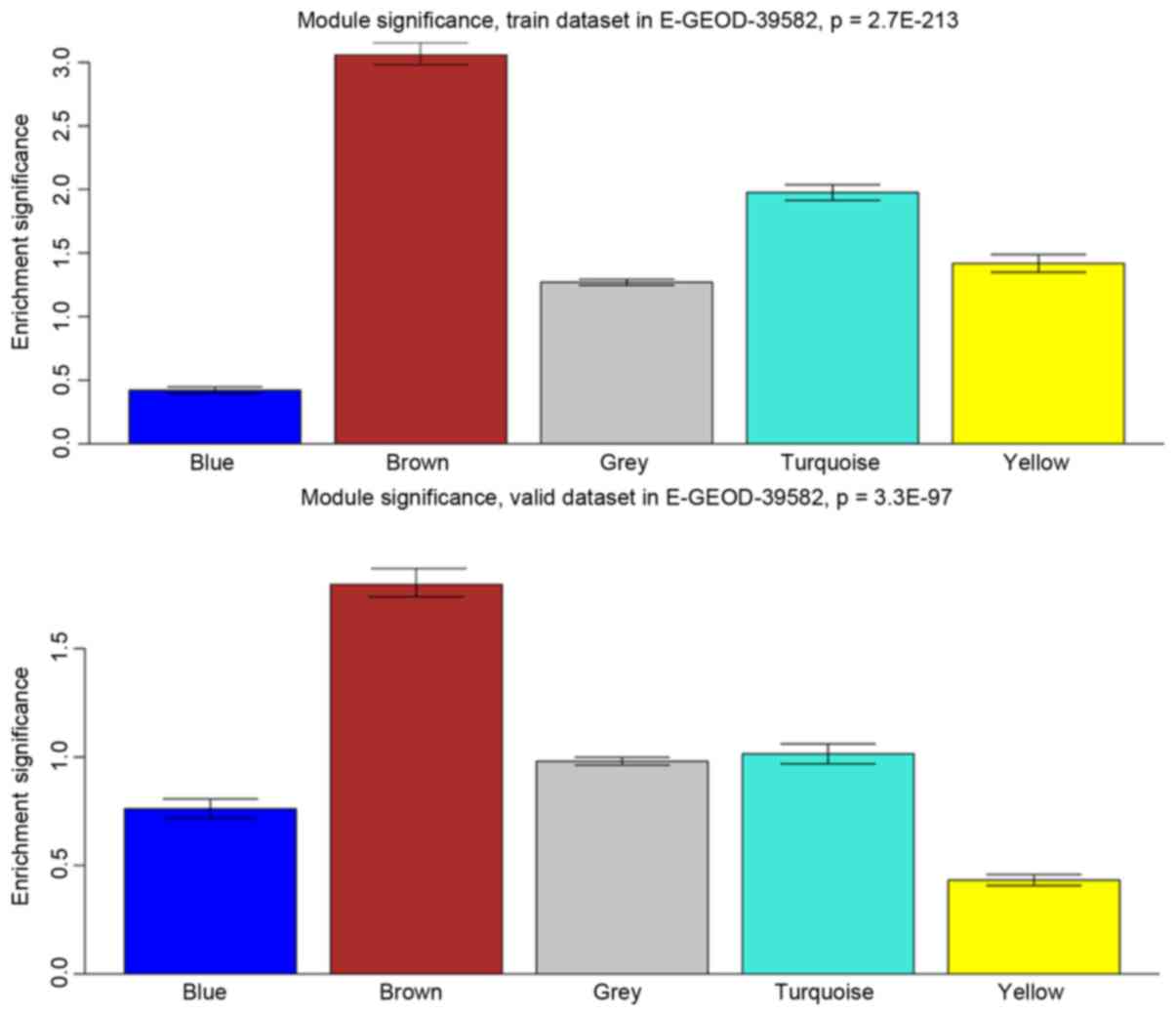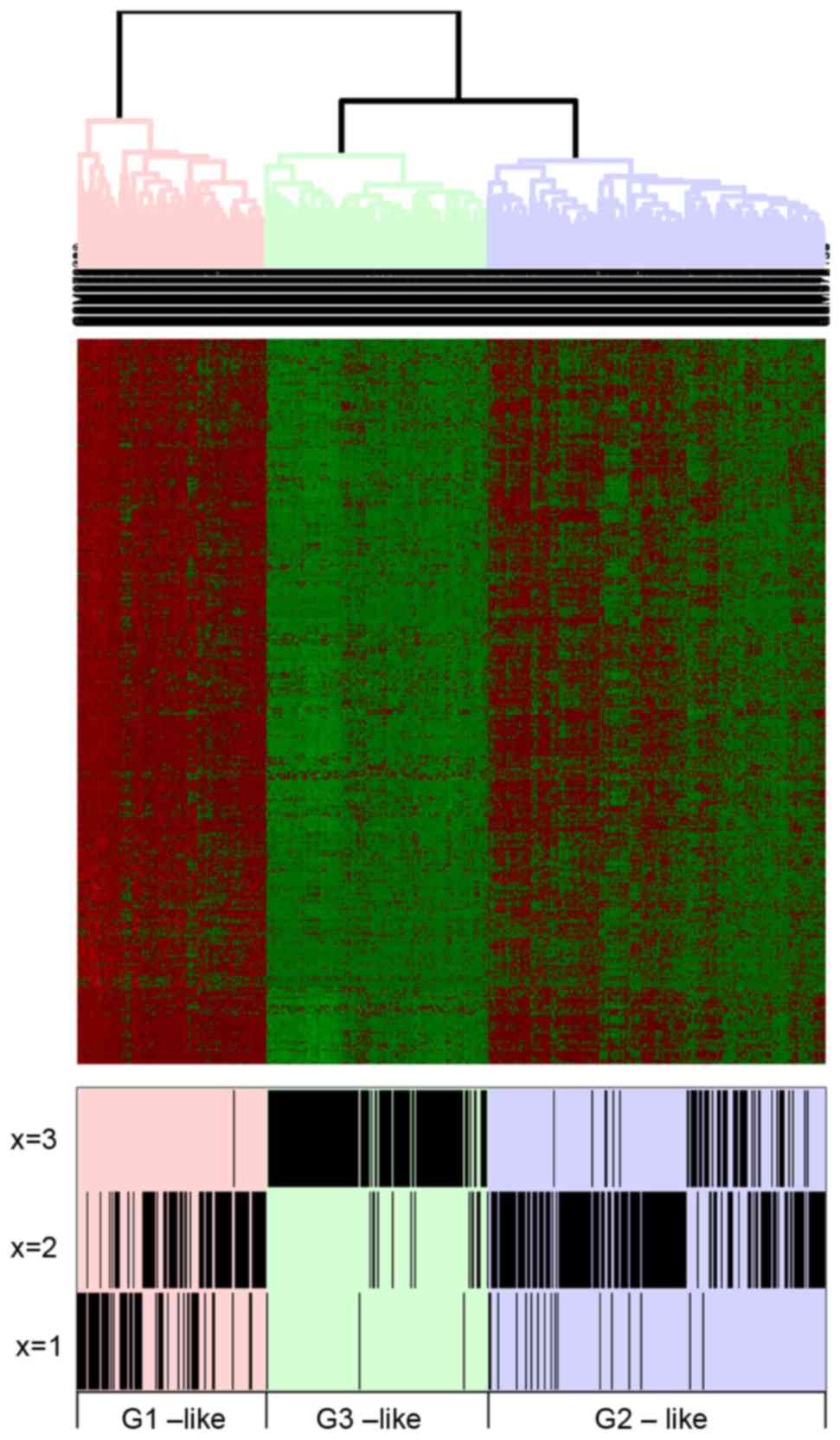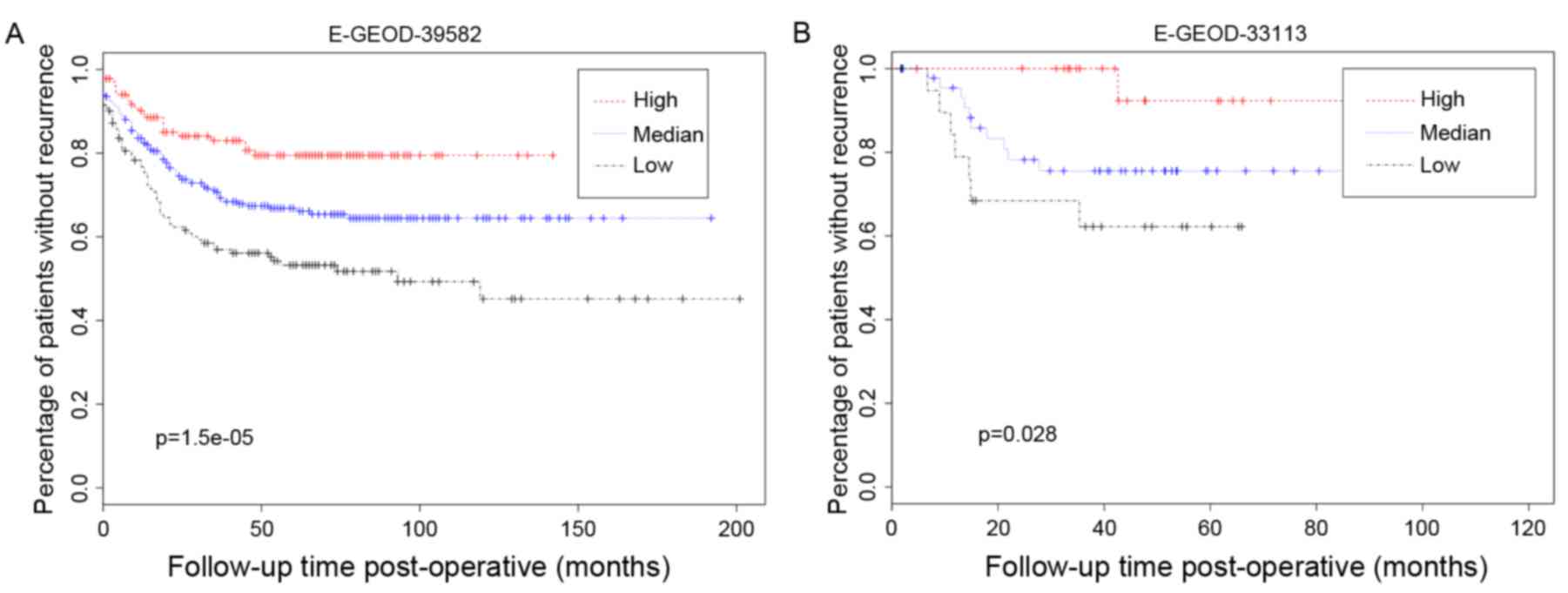|
1
|
American Cancer Society, . Colorectal
cancer facts & figures, 2011–2013. Atlanta, GA: American Cancer
Society; 2011
|
|
2
|
Liang Z, Baige L, Shen G, Lina S, Lingxia
L and Chengyan H: Study on the Serum Periostin Concentrations of
colon cancer patients. Chin J Lab Dia. 4:422015.
|
|
3
|
Yangming G, Chunxiao W, Minlu Z, Minlu Z,
Peng P, Kai GU, Pingping B, Zhezhou H, Yongmei X and Ying Z:
Colorectal cancer survival analysis in major areas in Shanghai.
China Oncol. 25:497–504. 2015.
|
|
4
|
Gerger A, Zhang W, Yang D, Bohanes P, Ning
Y, Winder T, LaBonte MJ, Wilson PM, Benhaim L, Paez D, et al:
Common cancer stem cell gene variants predict colon cancer
recurrence. Clin Cancer Res. 17:6934–6943. 2011. View Article : Google Scholar : PubMed/NCBI
|
|
5
|
Duffy M, Lamerz R, Haglund C, Nicolini A,
Kalousová M, Holubec L and Sturgeon C: Tumor markers in colorectal
cancer, gastric cancer and gastrointestinal stromal cancers:
European group on tumor markers 2014 guidelines update. Int J
Cancer. 134:2513–2522. 2014. View Article : Google Scholar : PubMed/NCBI
|
|
6
|
Juo YY, Johnston FM, Zhang DY, Juo HH,
Wang H, Pappou EP, Yu T, Easwaran H, Baylin S, van Engeland M and
Ahuja N: Prognostic value of CpG island methylator phenotype among
colorectal cancer patients: A systematic review and meta-analysis.
Ann Oncol. 25:2314–2327. 2014. View Article : Google Scholar : PubMed/NCBI
|
|
7
|
Sanders MA and Majumdar AP: Colon cancer
stem cells: Implications in carcinogenesis. Front Biosci (Landmark
Ed). 16:1651–1662. 2011. View
Article : Google Scholar : PubMed/NCBI
|
|
8
|
Vermeulen L, Todaro M, de Sousa Mello F,
Sprick MR, Kemper K, Alea M Perez, Richel DJ, Stassi G and Medema
JP: Single-cell cloning of colon cancer stem cells reveals a
multi-lineage differentiation capacity. Proc Natl Acad Sci USA.
105:13427–13432. 2008; View Article : Google Scholar : PubMed/NCBI
|
|
9
|
Ahn JB, Chung WB, Maeda O, Shin SJ, Kim
HS, Chung HC, Kim NK and Issa JP: DNA methylation predicts
recurrence from resected stage III proximal colon cancer. Cancer.
117:1847–1854. 2011. View Article : Google Scholar : PubMed/NCBI
|
|
10
|
Yang IP, Tsai HL, Hou MF, Chen KC, Tsai
PC, Huang SW, Chou WW, Wang JY and Juo SH: MicroRNA-93 inhibits
tumor growth and early relapse of human colorectal cancer by
affecting genes involved in the cell cycle. Carcinogenesis.
33:1522–1530. 2012. View Article : Google Scholar : PubMed/NCBI
|
|
11
|
Liao X, Lochhead P, Nishihara R, Morikawa
T, Kuchiba A, Yamauchi M, Imamura Y, Qian ZR, Baba Y, Shima K, et
al: Aspirin use, tumor PIK3CA mutation, and colorectal-cancer
survival. N Engl J Med. 367:1596–1606. 2012. View Article : Google Scholar : PubMed/NCBI
|
|
12
|
Langfelder P and Horvath S: WGCNA: An R
package for weighted correlation network analysis. BMC
Bioinformatics. 9:5592008. View Article : Google Scholar : PubMed/NCBI
|
|
13
|
da W Huang, Sherman BT and Lempicki RA:
Systematic and integrative analysis of large gene lists using DAVID
bioinformatics resources. Nat Protoc. 4:44–57. 2009.PubMed/NCBI
|
|
14
|
Richardson J, Viswanathan K and Lucas A:
Serpins, the vasculature, and viral therapeutics. Front Biosci.
11:1042–1056. 2006. View
Article : Google Scholar : PubMed/NCBI
|
|
15
|
Zhang X, Song YF, Lu HN, Wang DP, Zhang
XS, Huang SL, Sun BL and Huang ZG: Combined detection of plasma
GATA5 and SFRP2 methylation is a valid noninvasive biomarker for
colorectal cancer and adenomas. World J Gastroenterol.
21:2629–2637. 2015. View Article : Google Scholar : PubMed/NCBI
|
|
16
|
Ning L, Haixing J, Zhenyu H, Shanyu Q and
Xin L: Expression of SFRP2, β-catenin and their roles in colorectal
carcinoma. J Dig Oncol (Electronic Version). 2008.
|
|
17
|
Shi Y, Liu Y, Wang J, Jie D, Yun T, Li W,
Yan L, Wang K and Feng J: Downregulated long noncoding RNA BANCR
promotes the proliferation of colorectal cancer cells via
downregualtion of p21 expression. PLoS One. 10:e01226792015.
View Article : Google Scholar : PubMed/NCBI
|
|
18
|
Kogo R, Shimamura T, Mimori K, Kawahara K,
Imoto S, Sudo T, Tanaka F, Shibata K, Suzuki A, Komune S, et al:
Long noncoding RNA HOTAIR regulates polycomb-dependent chromatin
modification and is associated with poor prognosis in colorectal
cancers. Cancer Res. 71:6320–6326. 2011. View Article : Google Scholar : PubMed/NCBI
|
|
19
|
Ge X, Chen Y, Liao X, Liu D, Li F, Ruan H
and Jia W: Overexpression of long noncoding RNA PCAT-1 is a novel
biomarker of poor prognosis in patients with colorectal cancer. Med
Oncol. 30:5882013. View Article : Google Scholar : PubMed/NCBI
|
|
20
|
Yao L, Lao W, Zhang Y, Tang X, Hu X, He C,
Hu X and Xu LX: Identification of EFEMP2 as a serum biomarker for
the early detection of colorectal cancer with lectin affinity
capture assisted secretome analysis of cultured fresh tissues. J
Proteome Res. 11:3281–3294. 2012. View Article : Google Scholar : PubMed/NCBI
|
|
21
|
McPherson RA and Pincus MR: Henry's
Clinical Diagnosis and Management by Laboratory Methods. 22nd
edition. Elsevier Saunders; Philadelphia, PA: 2011, View Article : Google Scholar
|
|
22
|
Guo Q, Song Y, Zhang H, Wu X, Xia P and
Dang C: Detection of hypermethylated fibrillin-1 in the stool
samples of colorectal cancer patients. Med Oncol. 30:6952013.
View Article : Google Scholar : PubMed/NCBI
|
|
23
|
Chew A, Salama P, Robbshaw A, Klopcic B,
Zeps N, Platell C and Lawrance IC: SPARC, FOXP3, CD8 and CD45
correlation with disease recurrence and long-term disease-free
survival in colorectal cancer. PLoS One. 6:e220472011. View Article : Google Scholar : PubMed/NCBI
|
|
24
|
Liang JF, Wang HK, Xiao H, Li N, Cheng CX,
Zhao YZ, Ma YB, Gao JZ, Bai RB and Zheng HX: Relationship and
prognostic significance of SPARC and VEGF protein expression in
colon cancer. J Exp Clin Cancer Res. 29:712010. View Article : Google Scholar : PubMed/NCBI
|
|
25
|
Lascorz J, Chen B, Hemminki K and Försti
A: Consensus pathways implicated in prognosis of colorectal cancer
identified through systematic enrichment analysis of gene
expression profiling studies. PLoS One. 6:e188672011. View Article : Google Scholar : PubMed/NCBI
|















